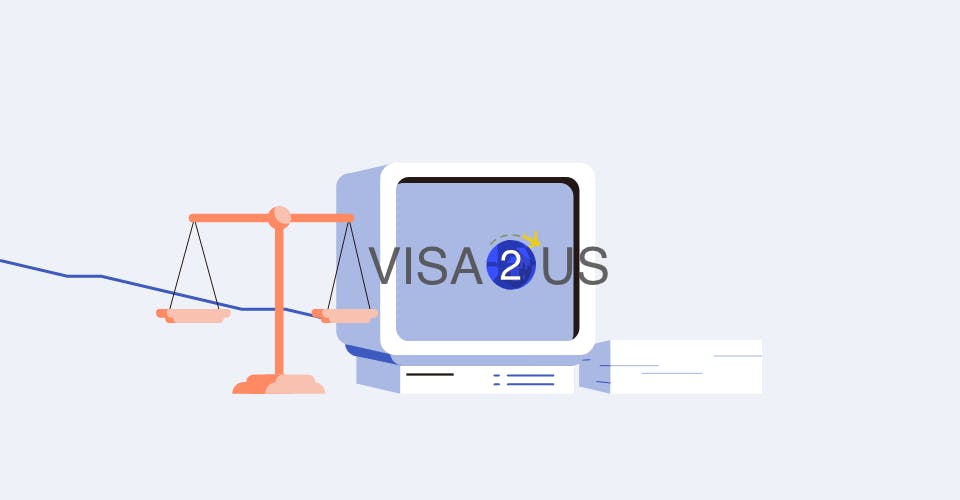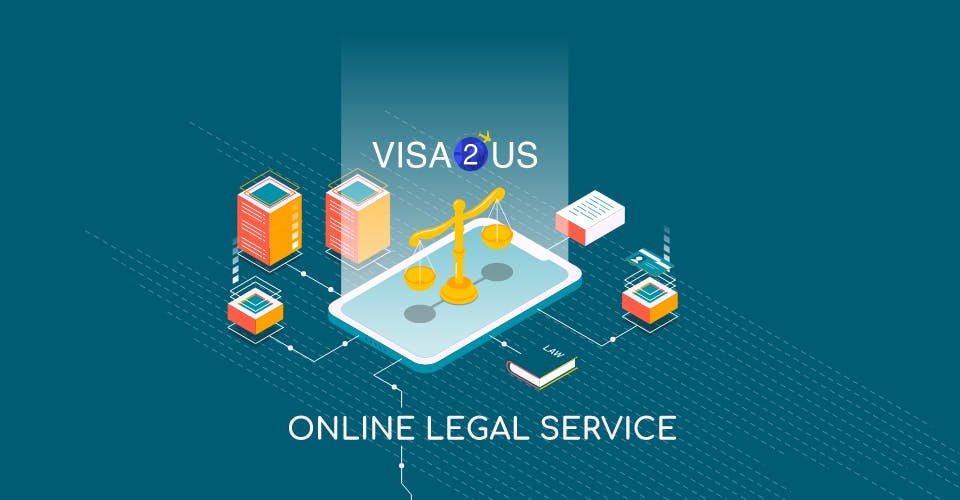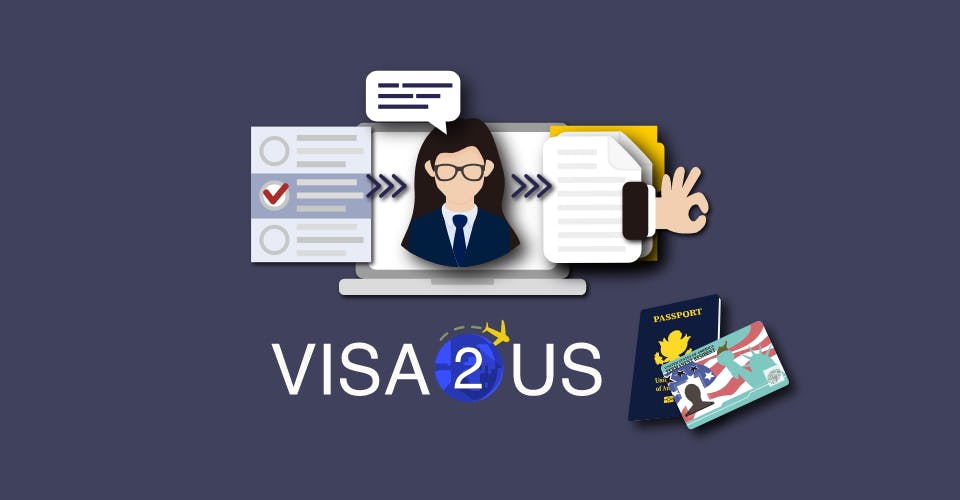Immigrating to the United States can be stressful—but having an understanding of the major organizations, and also the forms and paperwork, involved in securing a visa or green card can make the process a little bit more comfortable, and easier.
On the one hand, applicants need to know who is governing what procedures and where to look in order to access government information. And on the other, applicants need to know how to answer technical questions on important forms they are paying hundreds of dollars to submit. This guide is meant to address both of these qualms—the institutional side of things, as well as the micro layer details that matter when it comes time for making the United States one's legal residence. If you have questions especially for certain immigration type, please check:
As such, let’s first address some basic questions about the former issue of institutions that are guiding the process. Then we will answer more questions about actual visa types and where to go from there:
Customs and Border Patrol
Like traveling anywhere internationally, you will need to go through Customs when you are immigrating to the U.S no matter what, and as such, the CBP (Customs and Border patrol) officer will greet you and ask you why you are coming to the U.S. and what the purpose is for your stay and how long you plan on staying for.
Immigrants from the European Union who are vacationing in the U.S.—if that is their intent, can receive a tourist visa upon entering the U.S for up to 180 days for example. Many citizens from countries around the world (with the exception of some countries that don’t have good relations with the U.S., such as North Korea) can easily receive tourist visas, for example, simply by traveling here, being honest about their vacation plans, and not bringing drugs into the country or engaging in trafficking.
While a CBP officer will stamp a tourist visa into your Passport, the CBP is also an authority on other visas, on green cards, and moreover stopping illegal immigration into the country. A CBP officer actually has the final say on whether to admit someone to the U.S. or not. For those reading about the process of immigrating to the U.S., you will frequently see that even if your visa is approved and you have waited a year to enter the country, your visa is still up for discretion by a Customs officer. This is true.
The Department of Homeland Security will also try to prevent illegal immigration, but their officers do not work at airports, they work for example at the Southern Border with Mexico, or with the USCIS, an agency of the DHS.
Where does the USCIS come into play?
The USCIS is not the same as a border patrol or customs agent, although the USCIS—United States Citizenship and Immigration Services is an agency of the DHS, as mentioned. The USCIS works to provide immigrants around the world with the proper forms and documentation for securing entry into the U.S., and also has officers give green card interviews and take Biometrics and adjudicate cases.
The USCIS works on U.S. soil only, and therefore delegates their responsibility to the State Department (another government body) for any case that revolves around processing abroad, or what is termed consular processing. This is because the United States consulates and embassies around the world also take immigration appointments, and such consulates are under the authority of the State Department. Especially in the case of refugees, asylees, and family members being petitioned on behalf, consular processing from abroad is common.
What kind of visa will I need to be able to stay and work in the U.S.?
Now that we have covered some background material, we can actually discuss what kind of visas are available and how the processing o such visas work. Generally, immigrants come to the United States for a few different purposes:
1. A foreign national has secured a competitive job offer in the United States and is being sponsored by a company to work in the U.S. for a year or perhaps longer.
2. Immigrants who feel trapped inside their country (either due to a protracted crisis or economic problems), and have close family members in the U.S. can be petitioned on behalf of and secure a visa for lawful entry.
3. Immigrants from underrepresented countries in the U.S. can apply for the Diversity Visa lottery and win a chance to be eligible for a green card in the United States.
What is a Green Card?
To clarify further, just because you are coming to the U.S. to work, or because you have won the DV lottery, does not mean you are a green card winner as well. The green card process is highly sought after in the United States and involves proving to the USCIS (or an officer during the green card interview), that you are a good enough candidate to be a lawful permanent resident (LPR), of which most green cards are valid for 10 years.
Even H1-B recipients, which is a competitive visa for highly skilled workers with advanced degrees, are only allowed in the U.S. for 3 years pending one renewal.
What is an Employment Authorization Document?
Not to worry, for those coming to the U.S. on a family visa or for those who are in the middle of adjusting their status (which is a term meaning applying for a green card), many will be issued what is called an EAD card—essentially a work permit. Work permits are issued for visa holders in the U.S. who are not yet legal permanent residents. In other words, even when you are filing your I-485 for a green card, you will be issued a work permit so you can support yourself in the U.S. while your green card application is being processed.
DV lottery winners are usually working in the U.S. on a work permit, as are K visa holders (those with immediate family members in the U.S.). Eventually, as long as your original visa to the U.S. was not a student or temporary visa, you are eligible to adjust your status in the U.S. so long as you are not inadmissible.
What does dual intent mean?
For those adjusting their status, or for those who have plans to, such applicants will need to have been admitted to the U.S. on a dual intent visa. For example, a temporary tourist visa is a single intent—the visitor is required to return home when the visa expires. Dual intent visas are non-immigrant work visas, such as H1-B, H-4 dependents, and K-1, K-2, K-3, K-4 visas. It is forbidden to come to the U.S. on a tourist visa, and then later on in the same stay try to file an I-485 application.
How can I sponsor a close family member to come to the U.S?
Even if you are a respectable worker and a good person to have in the community, such as the case of the H1-B visa holders, you are still not eligible to petition to bring a close family member to the United States. H1-B visa holders often will have their children file as H-4 dependents. However, to actually file an I-130 petition for a relative abroad, you need to be an LPR or U.S. citizen.
For more information regarding the family of U.S. citizen, please see the following link: https://www.uscis.gov/family/family-of-us-citizens
What are some reasons individuals get denied green cards?
We’ve clearly demonstrated so far that while having a visa in the U.S. can be empowering and lead to a new chapter in ones life, the green card is even more valuable as it gives individuals rights and responsibilities that resemble U.S. citizenship. But USCIS officials scrutinize every green card applicant and as such, they often find reasons to deny applications altogether. Some of these most common reasons include:
- Evidence of substance abuse during the adjustment period
- A crime on ones record that has not been expunged (even misdemeanors)
- Lying about one's immigration past or I-94 record
- Not being vaccinated for a certain disease by the time of one's green card interview
- Lying about the legitimacy of a marriage or trying to commit marriage fraud
Can you have your green card revoked?
While U.S. citizens cannot be deported, the one issue with having a green card is that the holder has significant freedoms and opportunities, but is also responsible under U.S. laws and regulations. In other words, if a green card holder commits a serious crime or even collaborates with a terrorist organization, they could be stripped of their green card and put into removal proceedings. Similarly, the current Administration has even made de-naturalization a policy.
More questions? Don't hesitate to contact us at contact@visa2us.com.













